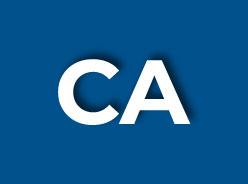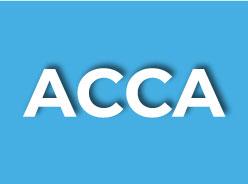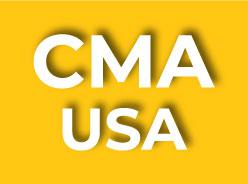The Certified Management Accountant (CMA) certification is a globally recognized and well established professional credential which lays emphasis on management accounting and corporate finance. The governing body that hands out this credential is the Institute of Certified Management Accountants (ICMA®), a division of the Institute of Management Accountants (IMA®). Tol date, IMA members have earned their CMA certifications and have established great careers in more than 140 countries. After earning the CMA credential, professionals can look into a myriad of career paths related to operations and decision-making. Job opportunities and CMA salaries differ depending on a candidate’s years of experience and work background.
What is the role of a CMA?
The role of a Certified Management Accountants is to be a steward, an operator, strategist and catalyst. They are required to utilize their decision-making, planning and performance management skills to deliver expert advice and reporting.
- As stewards of the organization, they are responsible for making sure that the company’s assets are safe, they also ensure that the company is in compliance with financial regulations and external financial reporting.
- They also play the role of operators, where they extend the service of financial planning, treasury, and tax to run an efficient finance organization
- They are also strategists, they are financial leaders who align business and finance strategies for the future of business.
- They will also enhance the success of the organisation with their analytical and technology skills.
- They also have to step up to the role of a leader, inspiring and guiding the team to achieve organisational goals.
CMA Career Paths
Being CMA certified opens up a lot of career opportunities both in India and as well as in the global market. The professional qualification will boost your financial, accounting, and management skills, which in turn expands your career potential helping you to create your space and stand apart from the rest.
CMA’s are well remunerated and provide plenty of room for growth and advancement, it also provides great job security as CMA’s have a unique set of skills that are not easy to come by.
Here are some of the job roles that CMA’s can look into.
- Financial Analyst
- Cost Accountant
- Accounting Managers
- Financial Risk Manager
- Financial Controller
- Chief Financial Officer
- Cost Manager
- Relationship Manager
Let us look into some of the most sought after or popular roles and what those roles and jobs entail.
Financial Analyst
This role is perfect for those who like to observe and study about market trends, analyse the microeconomic aspects of finance. They are expected to pay careful attention to detail so that they can make sound decisions about the financial condition of a potential investment.
A Financial Analyst will track financial statements, prepare reports, analyze results, and give recommendations to improve company productivity. Being CMA certified will showcase that they have the confidence and knowledge required to complete a full cycle, right from generating financial reports all the way to providing recommendations based on a complete analysis of the compiled information. As a financial analyst, you can work anywhere from a bank or an insurance company to a startup or global enterprise.
Cost Accountant
A Cost Accountant is responsible for analysing and recording each and every cost incurred by the company. A Cost Accountant collects, analysis, and report details about a business’s costs so as to find discrepancies and inefficiencies which should be eliminated so as to identify where the company is losing money unnecessarily so that the overall financial management can be improved. When one becomes a CMA, Cost accountants learn the skills needed to do successful costs accounting and communicate strategic plans to the top management and executives for implementation.
On a daily basis, a Cost Accountant tackles various tasks such as preparing asset, liability, and capital account entries, documenting financial transactions, making financial recommendations based on the analysis of financial history.
Accounting Managers
Accounting Managers maintain and develop accounting systems and the methodologies and procedures used by accountants in collecting and analyzing data. The every day job roles and duties include overseeing daily operations, monitoring and analyzing data, creating financial statements and reports, as well as upholding strict accounting policies and principles.
Accounting Managers also oversee the whole project by other accountants and usually work for large companies or companies where they are a lot of accountants are employed.
Financial Risk Manager
A Financial Risk Manager is one who analyzes and predict threats beforehand in order to minimize risks. Using the analytical and decision-making skills, a Financial Risk Manager will analyse the future changes that could affect the business’s overall financial and strategic plans.
Once a person has attained this certified management position, they have to predict the changes with analytical skills, apply strategic objectives and then create a future trend for a business. This job is ideal for those who love and are proficient in mathematics.
Financial Controller
Financial Controllers work along with the Chief Financial Officers directly, as someone who heads the finance department. This role is primarily a managerial role where one oversees other accountants and accounting managers, where they also convert data into financial reports and formulate financial strategies.
On a daily basis, they are expected to undertake various tasks such as analysing books, auditing, carrying out administrative tasks, overlooking tax issues, and formulating financial strategies and decisions. To be successful in this role as a Financial Controller one has to be great at multi-tasking, they also need to have analytical and great communication skills.
This role is apt for those who have the CMA credential, as this role of a Financial Controllers demands one to make a strategic recommendation and manage other accounting professionals.
Chief Financial Officer (CFO)
A CFO to a Chief Financial Officer is one of the most sought after and managerial roles, they are often considered as the right-hand as a CEO. They head the company’s financial decisions as the finance arm, they look into financial reporting and forecasts the investments of the organisations and make well sound financial decisions.
Some of the key roles of a CFO is to track cash flow, analyse financial strengths and weaknesses and then propose corrective actions to overcome the weaknesses. CFOs are involved in financial reporting, financial forecasting, and company investments. The CMA credentialing process ensures that one has the right leadership, communication and analytical skills. To rise to the role of a CFO will take years of experience and they can develop unique skills, but having the CMA credential will fast track the whole process.
Who should look into being a CMA?
For anyone who is interested in pursuing a career in accounting and finance and wishes to advance their career by taking an internationally recognized credential known for strategic thinking, then CMA roles is the right one. Through the credentialing process, CMA candidates will get to learn how they can turn data into decisions and make important and well defines strategic business decisions which are formed on that data.
What are the requirements to become a CMA?
CMA candidates must:
- Possess an active IMA membership
- Clear both parts of the CMA Exam
- Hold a bachelor’s degree from an accredited college or university
- Have two continuous years of professional experience
If you would like to be a CMA and want to know more about the course, please get in touch with our career experts, they will guide you towards it.

 ABOUT LAKSHYA
ABOUT LAKSHYA  WHY CHOOSE LAKSHYA
WHY CHOOSE LAKSHYA  MISSION AND VISION
MISSION AND VISION  CHARTERED ACCOUNTANCY (CA)
CHARTERED ACCOUNTANCY (CA)  ACCA
ACCA  CMA-USA
CMA-USA  RESULTS
RESULTS 


